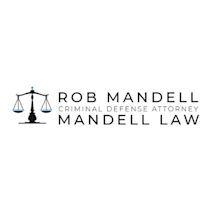Top Orlando, FL Juvenile Law Lawyers Near You
Personal Attention - Powerful Representation - Proven Results. 30+ Years combined experience, Superb 10 AVVO, AV Rated, Super Lawyers™
Free Consultation
10.0 Justia & AV-Rated. Individual Strategies - Relentless Protection. Decades of Experience Handling All Criminal Charges
Free Consultation
Virtual Appointments
Top-Rated LOCAL Criminal Defense. 150+ Yrs Combined Experience. A+ BBB, Super Lawyers, Superb 10 AVVO, Top 100 Trial Lawyers.
Se Habla Español
Free Consultation
Experience. Tenacity. Results. Justin Rickman Is Knowledgeable And Ready To Fight For You. Contact Us Today!
The Strength To Fight. The Confidence To Win. Aggressive Defense. Courtroom Tested. Call Today Now For A Free Consultation.
Se Habla Español
Free Consultation
189 S. Orange Avenue, Suite 810, Orlando, FL 32801
In the Orlando, Florida area, Mandell Law can help you resolve your Juvenile issues.
Se Habla Español
Free Consultation
510 Co Rd 466, Suite 203W, The Villages, FL 32159
Other Nearby Offices
Those seeking legal help with Juvenile can reach out to Whittel & Melton, LLC, a local practice representing people in Orlando, Florida.
Se Habla Español
Free Consultation
Virtual Appointments
3708 S. John Young Pkwy, Suite D, Orlando, FL 32839
Other Nearby Offices
Musca Law has experience helping clients with their Juvenile needs in Orlando, Florida.
Se Habla Español
Free Consultation
115 Granada Court, Orlando, FL 32803
Contact Moses and Rooth Criminal Defense Lawyers for experienced Juvenile guidance in Orlando, Florida.
Free Consultation
121 South Orange Avenue, Suite 1500, Orlando, FL 32801
Other Nearby Offices
If you need Juvenile help in Florida, contact O’Brien Hatfield, PA, a local practice in Orlando, for legal representation.
Se Habla Español
Free Consultation
Virtual Appointments
1420 Celebration Blvd., Suite 200, Celebration, FL 34747
Kazzi Law has experience helping clients with their Juvenile needs in Orlando, Florida.
Free Consultation
158 East Summerlin Street, Bartow, FL 33830
Clients in the Orlando, Florida area who need legal help with Juvenile issues can connect with Blenk Law, PA.
Free Consultation
201 East Pine Street, Suite 500, Orlando, FL 32801
121 S. Orange Ave., Suite 1420, Orlando, FL 32801-3240
20 N Orange Avenue, Suite 1207, Orlando, FL 32801
6900 Tavistock Lakes Blvd., Suite 400, Orlando, FL 32827
315 East Robinson Street, Suite 550, Orlando, FL 32801
255 S. Orange Avenue, Suite 900, Orlando, FL 32801
545 Delaney Ave, Suite 5, Orlando, FL 32801
800 North Magnolia Ave, Suite 450, Orlando, FL 32803
1945 E. Michigan Street, Orlando, FL 32806
641 N Rio Grande Ave, Orlando, FL 32805
4130 United Ave, Mount Dora, FL 32757
200 Pasadena Place, Suite A, Orlando, FL 32803
200 S. Orange Ave, Suite 2000, Orlando, FL 32801
5190 N Us 1, Cocoa, FL 32927
5323 Millenia Lakes Blvd, Suite 300, Orlando, FL 32839
111 North Orange Ave, Suite 1200, Orlando, FL 32801
1635 E. Hwy 50, Suite 200A, Clermont, FL 34711
200 S. Orange Avenue, Suite 2300, Orlando, FL 32801-3432
Orlando Juvenile Law Information
Lead Counsel independently verifies Juvenile Law attorneys in Orlando and checks their standing with Florida bar associations.
Our Verification Process and Criteria
Ample Experience
Attorneys must meet stringent qualifications and prove they practice in the area of law they’re verified in.Good Standing
Be in good standing with their bar associations and maintain a clean disciplinary record.Annual Review
Submit to an annual review to retain their Lead Counsel Verified status.Client Commitment
Pledge to follow the highest quality client service and ethical standards.
Dealing With Juvenile Law Issues?
If your child is facing criminal charges, it is important to get the best legal representation possible because a criminal record will follow your child as each educational and employment opportunity becomes available. A juvenile attorney will be able to help your family seek a resolution that protects your child’s current best interests and their future prospects.
Who Qualifies As a Juvenile?
In terms of criminal law and the definitions surrounding juvenile offenses, most states and the federal government consider those who have not yet turned 18 years of age to be juveniles. Three states — Georgia, Texas and Wisconsin — instead restrict the protections afforded to juvenile offenders to those aged 16 or younger.
There is also a provision that allows those who are older than 18, but younger than 21, to claim legal juvenile status if they are being charged with an offense that was commissioned before the defendant attained the age of majority.
What Are Some Types of Juvenile Crime?
According to the Department of Justice, some of the most common offenses conducted by juvenile offenders include simple assault, disorderly conduct, drug-related crimes, weapons-related offenses, vandalism, liquor law violations and various forms of theft (burglary, automobile theft, etc.).
Juveniles are generally capable of committing any crime that an adult might. However, certain juvenile offenses (say, being in possession of alcohol) are offenses related strictly to the age of the individual in possession. Juvenile crime related to statutory rape (between two minors) can also be a form of offense that so-called “Romeo and Juliet” laws were enacted to combat.
Different Types of Juvenile Charges
Juveniles can be charged with any criminal offense; same as an adult, but their cases are usually handled in the Juvenile Courts. Some juvenile law charges include underage possession of alcohol, drug crimes, gang involvement, vandalism and juvenile DUI. Other juvenile law-related issues include disciplinary actions at school and foster care issues.
A juvenile lawyer can also provide direction for juveniles and their families to programs that will help the juvenile’s defense by minimizing the risk of the youth from re-offending and preventing future criminal behavior issues.
What Are the Possible Penalties for Juvenile Offenses in Florida?
While juvenile offenders (or juvenile delinquents, if deemed so from a legal perspective) are afforded some protections (exempt from serving time in prison unless tried and convicted as an adult, for more serious offenses, where applicable) they do remain culpable for crimes committed.
A juvenile offender who is convicted could be facing court-order probation, mandatory counseling or therapy sessions, mandatory drug or alcohol rehabilitation, fines or monetary restitution, community service or even a term in detention (also termed “residence facilities”).
In situations where a juvenile is being tried as an adult, the sentencing is typically expected to match the severity of the crime. Despite the surprising frequency of this occurrence (generally for the most severe offenses, or for extreme incidences of repeat offenses), some such instances become high-profile cases with the attendant media exposure.
When Are Juveniles Tried As Adults?
In order to be tried as an adult, juvenile offenders must be meted out a waiver to adult court. Most states require that a juvenile offender be the age of 16 (though some states have no age limit appended to more serious charges, such as murder) in order for such a waiver to be handed down by the court.
Reasons for a juvenile being tried as an adult include, but are not limited to: the commission of a very grave or serious offense such as rape or murder, the offender having a lengthy juvenile record or a number of failed rehabilitation attempts having been made in the past.
It is estimated that approximately 250,000 juvenile offenders are tried as adults, per year, in the United States.
Can Juveniles Get Life Sentences or the Death Penalty?
As a result of several relatively recent Supreme Court decisions, juvenile offenders are not able to be sentenced to death, nor sentenced to life in prison without parole in response to any crime other than those related to homicide.
What Does a Juvenile Crime Lawyer Do?
A juvenile crime lawyer or criminal defense attorney is familiar with established case law, past precedent, and current statutes surrounding juvenile delinquency. These attorneys specialize in defending juvenile clients facing charges and can help defendants to navigate the juvenile justice system.
All juveniles facing court due to alleged offenses are entitled to an attorney, regardless of their ability — or the ability of their parents or guardians — to pay. It is extremely important to secure adequate legal representation if you are facing charges as a juvenile. If found guilty of the offenses levied against you, depending on the severity of the charges, you could be placed in detention or even tried as an adult, as exhibited above.
The creation of a criminal record as a result of having been tried, and convicted, as an adult can be extremely damaging to any young man or woman. Therefore, it’s important to work with a criminal defense lawyer.











